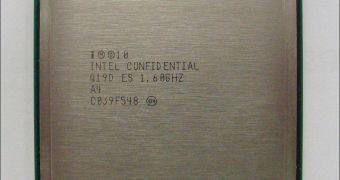Expected to arrive in the fourth quarter of this year, Intel's Romley platform for server systems was reportedly delayed for Q1 2012 as the Santa Clara chip giant is having troubles with the CPUs as well as with the chipsets going into this platform.
The news has been confirmed by several sources, cited by the Bright Side of News publication, which tend to agree that the release of this next-generation Xeon platform slipped into 2012.
Intel was allegedly forced to take this decision as it faces a series of problems ranging from low-yields of 8-core Sandy Bridge-E processors to issues with its Serial Attached SCSI (SAS) chipset implementation.
This is said to send random erroneous data to the drives installed inside the system, a issue that needs to be addressed before the Patsburg controller hubs are released into the wild, as SAS is present in three out of four versions of the chipset.
The Intel Romley platform is comprised out of the company's LGA-1356 and LGA-2011 Xeon processors, built using the Sandy Bridge-E high performance architecture, and the Patsburg chipset.
The chips will be released in the Xeon E5 CPU series and can pack up to 20 MB L3 cache, 2 QPI links, 40 PCIe Gen3 lanes, 4 DMI 2.0 lanes, and an integrated quad-channel DDR3 memory controller that support up to three DIMMs per channel for a maximum of 96GB.
LGA 1366 chips will get only a three channel memory controller and less PCI Express lanes, but otherwise they share pretty much the same design.
No information regarding the new release date of the Romley platform is available at this point in time, outside of the Q1 2012 estimate.
The good news is that the desktop version of Sandy Bridge-E won't be affected by these issues as Intel has removed SAS functionality from the X79 chipset.

 14 DAY TRIAL //
14 DAY TRIAL //